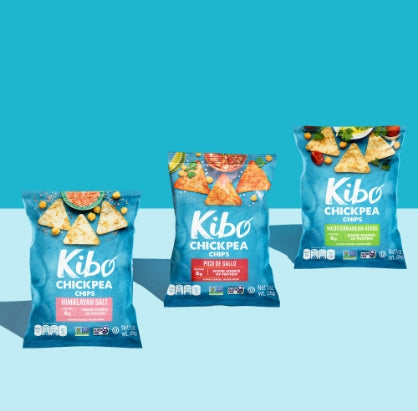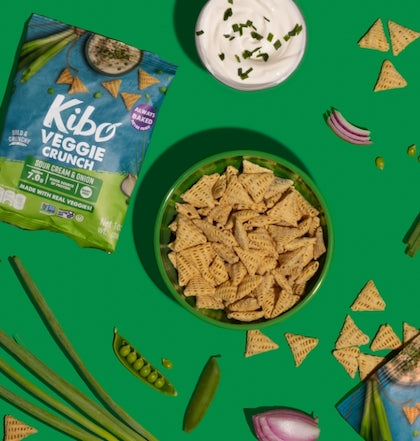Back-to-School Nutrition: The Best Foods for Brain Power
When it comes to concentrating, hunger pangs are a formidable foe. But not everything that fills us up helps us lock in and focus. Whether you’re headed back to campus or packing your kid’s lunch, it’s good to know which foods are optimal for mental performance markers like alertness, focus, and memory.
With the school year right around the corner, we're detailing some back-to-school nutritional strategies to keep the hunger at bay and help sustain a meaningful level of concentration.
Breakfast for Brain Health
You’ve heard breakfast referred to as the most important meal of the day, and there are numerous studies that support this claim—with some caveats.
According to Cleveland Clinic, students who eat breakfast on a regular basis perform better in school. This is partly because being hungry increases irritability and fatigue, which can hinder one’s ability to focus and even lead to behavioral issues.

But not all breakfasts are created equal. In fact, some breakfasts can backfire where concentration is concerned. Foods with a high glycemic index are associated with lower cognitive function and memory impairment, and many staples like breakfast bars, cereals, and toast are considered high on the GI index.
Foods with a high glycemic load can impair brain function by creating sudden spikes and drops in blood sugar, which depletes the amount of glucose in the brain. When in doubt, start with a breakfast low in carbs and high in protein, and if you want to take your energy and concentration levels to the next level, keep your breakfast on the smaller side to give your body a chance to warm up.
Eggs, Greek yogurt, and cottage cheese can all pack a nutritional punch to start your day, but if you or your family are plant-based, here are some great low GI breakfast options:
- Protein smoothies (especially berry smoothies)
- Tofu scramble with beans
- Steel-cut oatmeal with berries and other fruits
- Sweet potato and vegetable hash
- Chia pudding made with plant-based milk

Eating for Energy
If nutrition is essential to maintaining energy and healthy brain functioning, then what’s the deal with the dreaded food coma? Many students will relate to feeling fatigued after lunch, struggling to keep their eyes open or compulsively checking the clock til they're able to go home and nap.
Snacking strategically can help. Where energy and cognitive function are concerned, it’s actually more advantageous to eat 5-6 smaller meals a day rather than 2-3 larger ones. Eating frequent but small meals stabilizes blood sugar and keeps a steady stream of nutrients flowing through the body.
According to Harvard Health Publishing, those who eat a large lunch show higher levels of fatigue in the afternoon. And of course, as we’ve already laid out with respect to breakfast, it’s best to avoid high GI foods if energy is what you’re after.
Instead, opt for mini meals that are high in protein. Amino acids are known as “the building blocks of protein,” and neurotransmitters, which are composed of amino acids, are chemical messengers that enable brain cells to communicate. As such, protein rich foods, as opposed to foods high in carbohydrates, are best to keep on hand.
Additionally, whole foods high in fiber or resistant starch, like apples, bananas, carrots, celery, legumes, and whole grains can help control the blood sugar response to sustain energy from recess to after-school activities.

If you’re in college or grad school, foods like coffee, dark chocolate, turmeric or matcha lattes, and green tea can also provide a helpful boost of caffeine to keep you going—just be sure not to overdo it, as excessive stimulation can sometimes do more harm than good.
Lunch Options to Help You Focus
This brings us to the ultimate quandary where school and energy eating are concerned: you only get one lunch break. And when it comes to snack foods, the kind you might deploy in your attempts to eat mini meals rather than large ones, a lot of protein rich options aren’t the ones we crave.
We might crave potato chips or cheesy puffs, something that provides a quick fix. That’s where better-for-you snack options enter the picture. With 6 grams of protein per bag, Kibo’s Lentil Chips and Chickpea Chips are excellent sources of plant-based nutrition. They’re the perfect salty snack to keep on hand for your mini meals, and they’ll even satisfy your craving for something crunchy and indulgent while fueling your brain to keep you from crashing.
Nutritional deficiencies can contribute to brain fog, so it’s good to focus on a balanced diet with plenty of colorful whole foods to ensure you’re meeting your micronutrient needs. Spices like turmeric can help keep healthy foods flavorful while providing antioxidants. Probiotics from fermented foods like kimchi can keep your gut flora balanced for a healthy gut-brain connection. Essential fatty acids are also important for brain health, so it’s good to get healthy fats from foods like nuts and seeds.

Here are some of the best brain foods to pack for lunch:
- Walnuts
- Almonds
- Sunflower seeds
- Pumpkin seeds
- Broccoli
- Kale
- Blueberries
- Tomatoes
- Avocados
- Tofu and soy
In your campus cafeteria or your kid’s lunchbox, it’s always about balance. Having yummy, nutritious foods on hand can help students resist greasy eats and refined carbs so they stay mentally alert and engaged.
Takeaways
When it comes to eating healthy, most of us aren’t lights-out consistent, and that’s okay. But if you’re looking to maximize your cognitive functioning and keep your energy levels stable throughout the day, eat breakfast, avoid high GI foods, eat several small meals as opposed to 2-3 large ones, and opt for protein and fiber as opposed to empty carbs. If you’re looking for quick, sustainable protein to eat on the go, you can’t go wrong with Kibo chips. As always with health and nutrition, these are guidelines more so than rules, and a little indulgence never hurt anyone, especially when it’s pizza day.
Sources:
Cleveland Clinic, Does Breakfast Mean Better Grades?
Harvard Health Publishing, Eating to Boost Energy
National Institutes of Health, Omega-3 Fatty Acids
Psychology Today, Brain Power: Why Proteins Are Smart
 Reviews
Reviews






